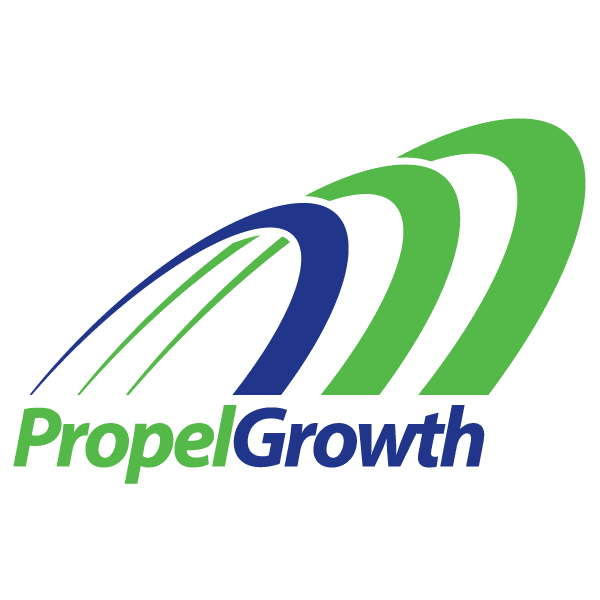![]()
In-House vs. Outsourced: Which is Better?
Many businesses struggle with the question — is it better to keep content marketing (and related strategy) in-house or outsource it to an agency? There are varied opinions on this topic. Some think that keeping the function in-house and taking advantage of employee resources already in place is the affordable and most effective approach. Others want to work with an agency that has industry knowledge and can bring another level of expertise to a project. Still others have found success using a combination of internal and external resources to achieve their goals. In today’s blog post, we’ll explore the pros and cons of both sides of the content marketing coin, and give you some insight on how to decide which approach may work best for your business.
Keeping Content Marketing In-House
Pros: The option of keeping content marketing in-house is appealing to some businesses, especially if you have a skilled digital marketing team with domain expertise already in place. Many perceive this as the lower-cost option, because they plan to use internal employees to create the content. Keeping the function in-house also ensures that Marketing maintains direct control over the messaging. In some companies, internal marketing staff are very knowledgeable about their company’s client needs and value proposition. Plus, in some cases, work done internally requires fewer layers of review, so the marketing team might be able to publish content more quickly than external writers who need to be educated and reviewed.
Cons: On the flip side of the coin, relying exclusively on an internal team can become a problem. For one, often companies underestimate the time and commitment involved in establishing and maintaining a strong content marketing program. Lots of in-house marketing teams start out strong, but run out of steam over time, particularly during their peak busy seasons. Another issue arises when in-house teams rely on internal subject matter experts (SMEs). These SMEs are often the most heavily utilized resources in the firm, so they continually face conflicting priorities. Marketing often takes a back seat to other more pressing needs. So marketers end up publishing irregularly, and marketing effectiveness suffers. In addition, we continue to find marketing teams who are unable to clearly express the company’s value proposition. They have little or no access to clients, they’re uninvolved in the sales process, and they can’t articulate why clients obtain value from the products and services they market. Honestly, I think marketers have a responsibility to become extremely fluent in this area. But the fact is that most marketers are very tactical and are not messaging experts.
Choosing to Outsource Content Marketing
Pros: That brings us to the benefits of leveraging an external agency for content marketing. Many companies, particularly fin-tech vendors, financial institutions, or others dealing with complex subject matter, choose to go this route. Working with a marketing partner that specializes in your company’s industry and target market can give you access to a dedicated team that has the required expertise to deliver sophisticated content in a swift timeframe. These agency team members get a lot of exposure to various strategies and tactics, so they’re well positioned to advise your marketing team on what works and what is likely to bomb. If the agency is worth their chops, they’re constantly researching trends in content marketing and testing their theories in their own marketing. If they’re doing that, an agency should offer you a clear understanding of evolving best practices, fresh ideas on how your firm can leverage content marketing — ideas that may not be readily apparent to you as an insider.
Cons: One difficulty companies encounter when using an agency for content marketing is getting an outside team up to speed. The agency may not spend enough time up front learning about your products, capabilities, industry and client base. They may not do adequate buyer persona research to get the messaging right. They may not be up to speed on the nuances of the financial markets; which means you’ll have to invest a lot of time teaching them. The end result may be that your marketing team needs to spend extra time educating, reviewing and editing. So it’s critical to find an agency that knows your target industry and has extensive experience doing the same sort of work for similar companies. That way, you can leverage their experience and knowledge, shortening the learning curve. In addition, external writers may have a hard time accessing internal SMEs for interviews. So it’s important that you invest some time educating your internal contributors about why you’re embarking on this marketing program, why you’re engaging the agency, and what you need from them. Time invested up front on getting everyone on board is very valuable in getting the best outcomes.
Developing Content Strategy
Keeping it In-House: Many of the positive aspects of constructing your content strategy using internal employees are similar to those of creating the actual content pieces in-house. Initially, this option may save you money, as you’re not allocating budget to an outside firm. Also, internal marketers that already know the business and may be able to devise a strategy more quickly than an outside agency. For example, they may already know that their client base frequents a certain publication, so posting content there would be important. On the other hand, companies that choose to devise their own content strategy may be at a disadvantage. Often companies don’t fully understand what truly constitutes a content strategy. In many cases, what a marketer presents as a marketing strategy is merely a collection of tactics that fails to deliver on the intended goals. We also frequently see documents presented as marketing strategies that lack some of the most vital components necessary to ensure a workable strategy and effective execution. For example, most firms don’t do buyer personas, or if they do, the personas are very thin and uninformative. They don’t leverage external interviews to create the personas, so they’re left with a very myopic view of the target audience. Since they’re not clearly aware of the needs of the buyer, they create company-centric messaging that doesn’t resonate with the target audience. The resulting content isn’t customer-centric, so they get limited engagement.
Outsourcing: Many organizations are reluctant to outsource the development of their marketing strategy, perceiving it to be an unnecessary expenditure. Also, some have had bad experiences with “generalist” marketing firms that lack the expertise needed to deliver on their promises. However, in terms of strategy and direction, most organizations can benefit from the outside perspective that a specialized content marketing firm with domain expertise in financial services can offer. Experience breeds strong intuition, and typically such a firm will have a lot of familiarity in running campaigns for companies in your same industry. Ideally, they should be constantly researching the landscape and speaking with other industry players. As unbiased outsiders, they may also help you identify areas for improvement in your marketing operations.
Our Recommendations…
Find the Right Partner: The real key to outsourcing is finding the right partner. For example, if you represent a financial technology company, steer clear of “generalist” marketing agencies. These agencies may be experts in content marketing in a universal sense, but don’t necessarily know enough about your vertical and industry to produce the level of content quality you need to drive conversions. One of our clients, a FIX testing solutions provider, encountered such a problem prior to working with us. They decided to use a local marketing agency to create some pivotal product marketing pieces. Unfortunately, the agency had no financial services experience and didn’t know enough about the nuances of this industry to deliver content that articulated their value proposition. Unfortunately, it proved to be a waste of both time and money. So, it’s worth spending a little extra time evaluating marketing firms until you find the right fit. A partner that specializes in your niche market can help you create a compelling content marketing program that tells your company’s story over time.
Strike a Balance: When delegating marketing responsibilities, a balanced approach that incorporates some in-sourcing and outsourcing works well for lots of companies. This way, in-house marketers can drive strategy, keep the team focused on the right message, and take responsibility for the areas that they are strongest in; while leaving the parts they’re unsure about or don’t have time for to outside experts. This also allows them to take advantage of the expertise, experience and knowledge of the agency so they can deliver effective programs. When deciding which aspects of your content marketing to keep up internally and which ones to outsource, consider the following:
- Do you have the available talent in-house to create high-quality content pieces?
- Does your talent have time to accomplish this given their other responsibilities?
- Do you have a marketing strategist who really knows content marketing strategies?
- Do you have an in-depth understanding of your customers’ needs, and have you developed accurate buyer personas?
- Do you have marketing automation so you can measure and understand the efficacy of your various campaigns, etc.?
- Do you have a PR team that has the right connections and can get the word out about your company through venues where your audience frequents?
- Do you have a definitive marketing plan/ strategy for social sharing, syndication, consistent publishing and email marketing?
If you answered “no” to any of the above questions, then you should consider outsourcing that function(s) to domain experts. This way you can retain responsibility for the aspects of marketing you’re sure you have under control, and leave the remainder to external marketing professionals that specialize in your area. For more information on how we can help you develop a content marketing strategy that generates leads, view our Content Marketing Programs web page.
- 4 Steps to Optimize Your LinkedIn Profile for Sales Prospecting – February 12, 2021
- The Reality of Cold Calling for B2B Sales – January 11, 2021
- Can Inbound Marketing Generate Enough Leads? – January 9, 2021








2 responses to “In-House vs. Outsourced Content Marketing”
[…] Content creation: This part covers the outsourced or in-house employees’ time needed to write, create, and design content, plus fixed costs, such as video production or […]
[…] Création de contenu: cette partie couvre le temps nécessaire aux employés sous-traités ou internespour écrire, créer et concevoir du contenu, ainsi que des coûts fixes, tels que la production de […]